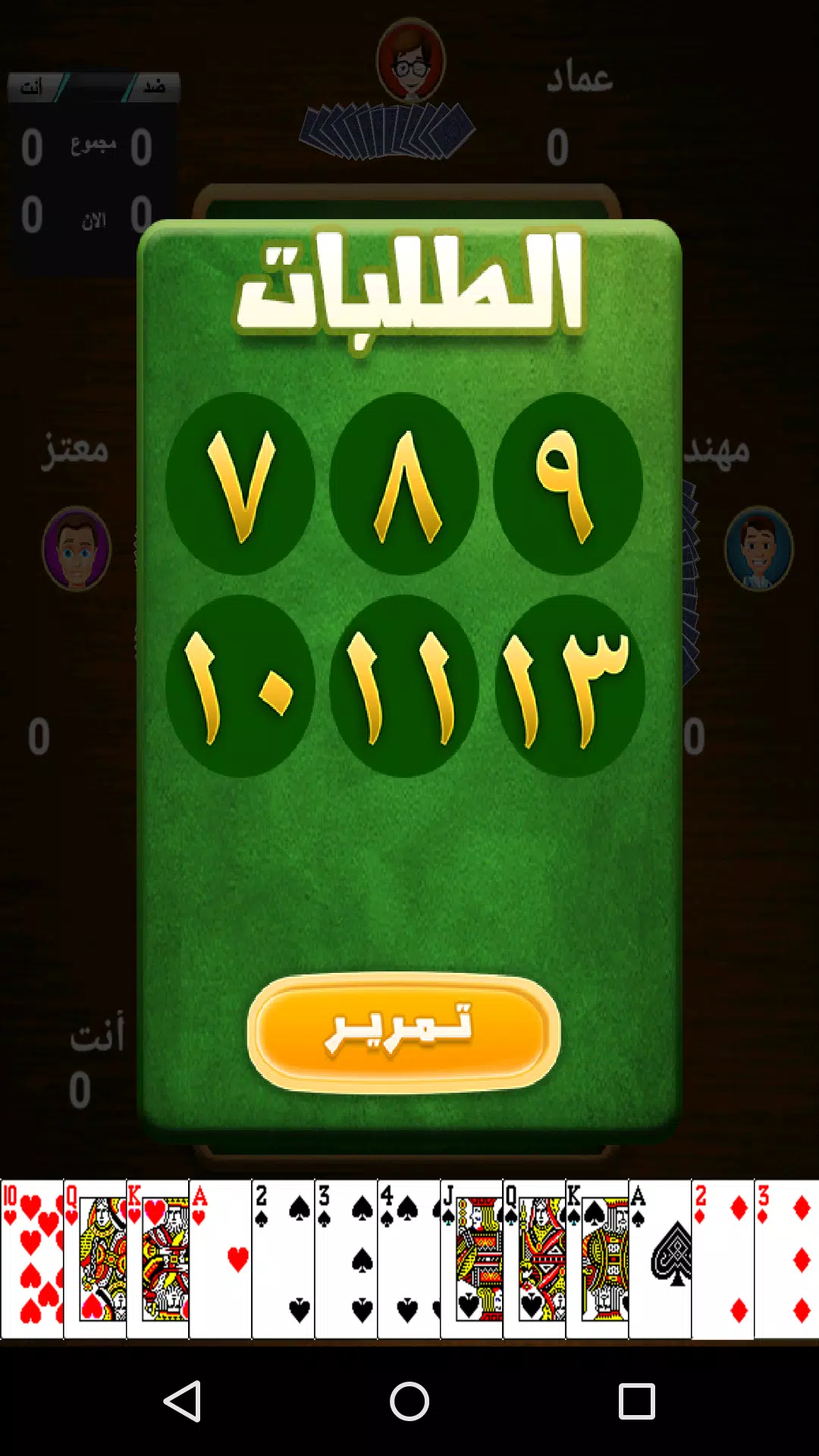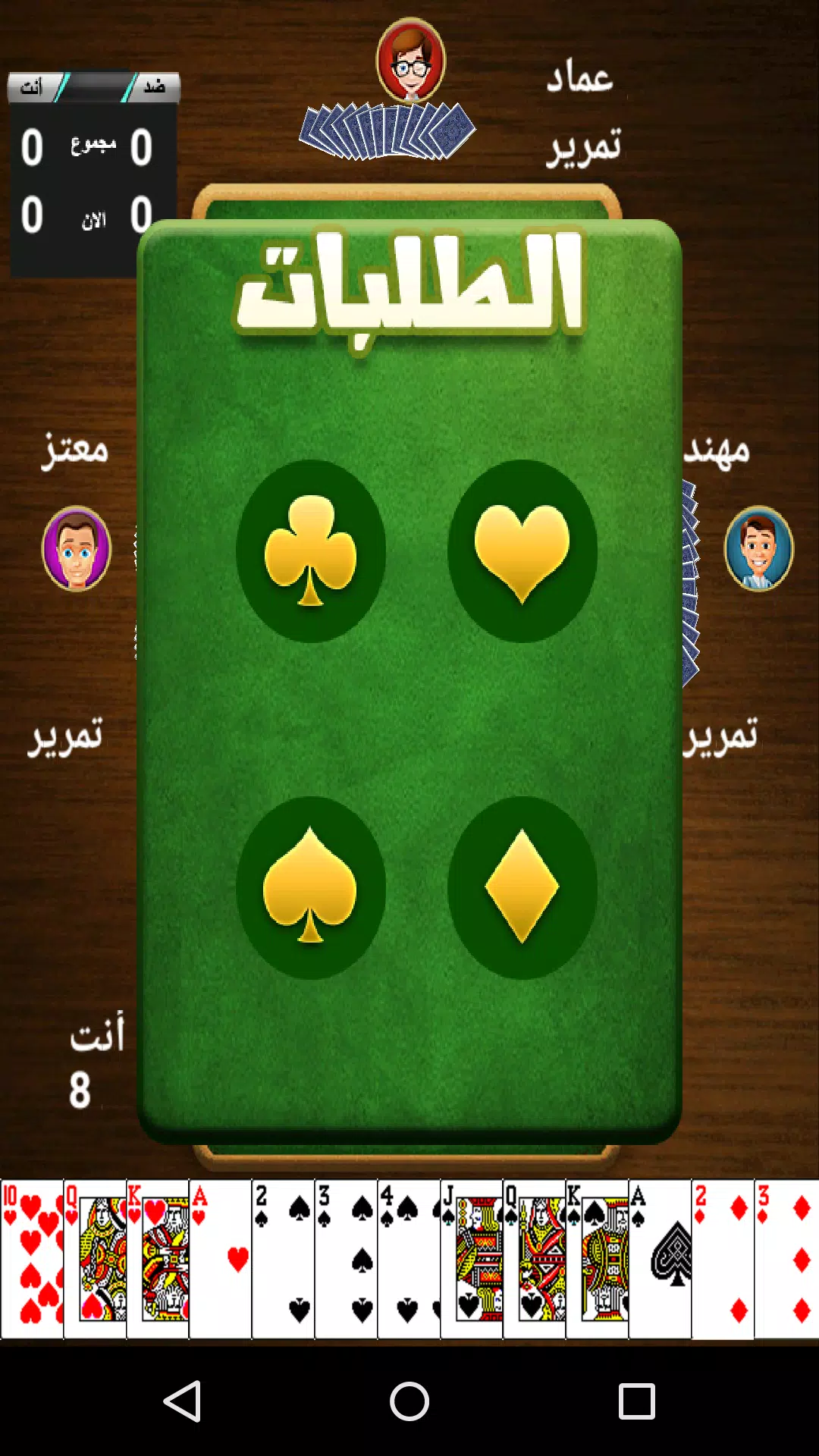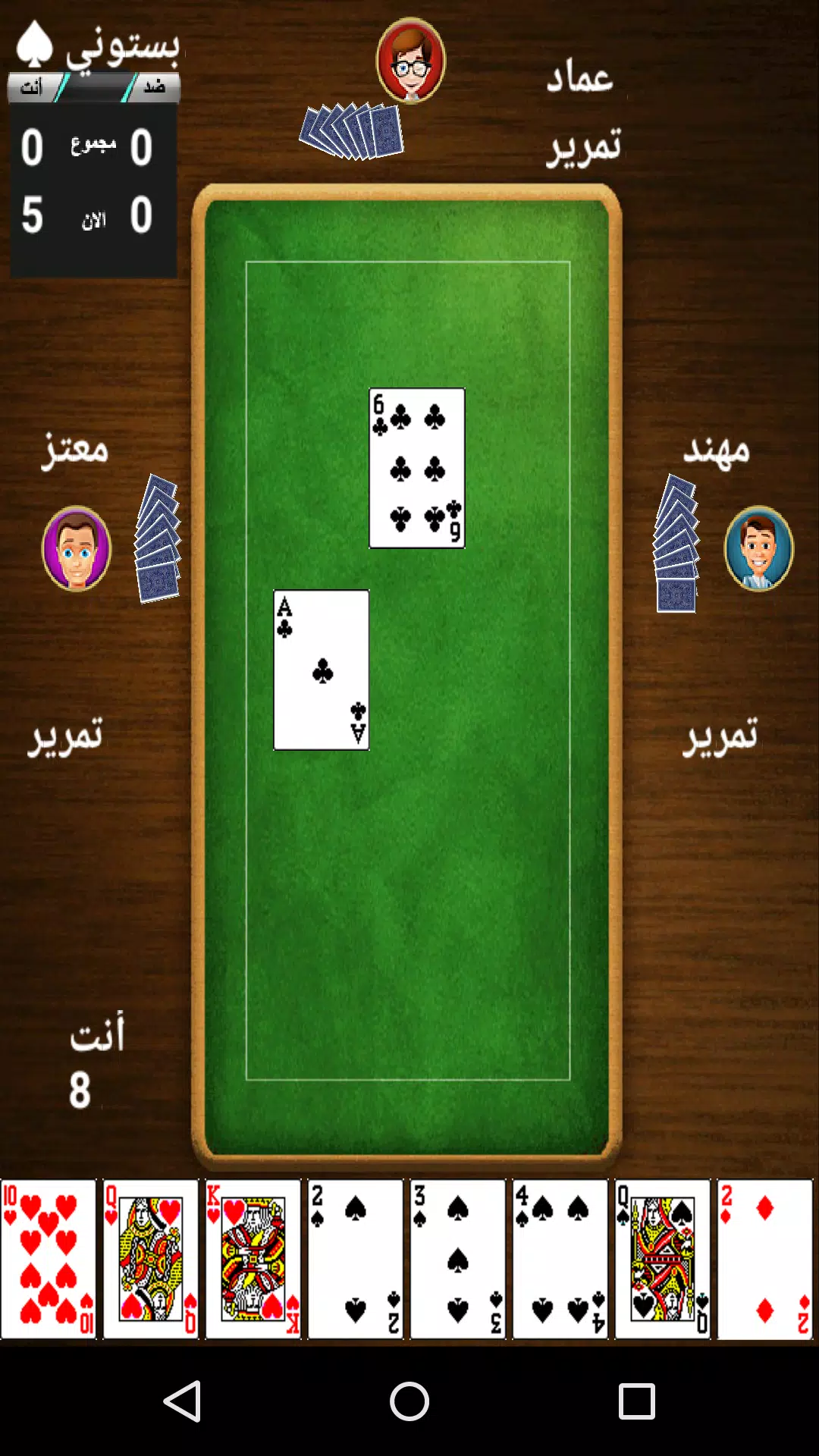In Arab countries, particularly in the Levant, a popular card game known as Tarneeb, often referred to as "rule" in the Arab Gulf states, captivates players with its strategic depth. The core objective of Tarneeb is to secure consecutive wins across multiple rounds. This engaging game is typically played among four players, divided into two teams of two, where each team aims to outscore the other by the end of the game.
Tarneeb uses a standard 52-card deck, excluding Jokers. The gameplay begins with the dealer distributing cards to the right, starting the bidding process with the player to their left. Each round involves all four players, with each pair of players forming a team opposite each other.
The bidding in Tarneeb starts from a minimum of 7 and can go up to 13, known as "Cabot" or "livers". Bidding progresses in a clockwise direction, starting from the player to the right of the dealer. The highest bidder then chooses the Tarneeb suit, which becomes the trump suit for that round.
During gameplay, if a team fails to meet their bid, they face penalties. For instance, if a team bids for 10 tricks but only secures 9, they receive no points, while the opposing team earns points for the tricks they collected, say 4 in this example. If the opposing team collects 5 tricks, the bid's failure becomes evident.
The game concludes when one team reaches the predetermined score, either 61 or 31, agreed upon before the start of the game.
In terms of card hierarchy, the ranking from highest to lowest is as follows:
- A (Cut)
- K (Sheikh)
- Q (girl)
- J (born)
- Followed by 10 down to 2 in descending order.


























